Nine diverse books about animism, landconnectedness, folklore, and women in the meeting with ecological disaster.
Making Love with the Land (2022) by Joshua Whitehead Voice: Aboriginal Australian, Turtle Island.
Themes: Identity. Indigeniousity, queerness, body and land, language and land.
Format: essays, memoirs, notes, confessions.
The StoryGraph summary: Making Love with the Land is a startling, heartwrenching look at what it means to live as a queer Indigenous person "in the rupture" between identities. In sharp, surprising, unique pieces—a number of which have already won awards—Whitehead illuminates this particular moment, in which both Indigenous and non-Indigenous peoples are navigating new (and old) ideas about "the land." He asks: What is our relationship and responsibility towards it? And how has the land shaped our ideas, our histories, our very bodies?
Here is an intellectually thrilling, emotionally captivating love song—a powerful revelation about the library of stories land and body hold together, waiting to be unearthed and summoned into word.
Braiding Sweetgrass: Indigenous Wisdom, Scientific Knowledge, and the Teachings of Plants (2013) by Robin Wall Kimmerer
Voice: Native American, Citizen Potawatomi Nation
Themes: ecological consciousness, animism, reciprocity
My rating: ♡♡♡♡♡\5
Goodreads summary: As a botanist, Robin Wall Kimmerer has been trained to ask questions of nature with the tools of science. As a member of the Citizen Potawatomi Nation, she embraces the notion that plants and animals are our oldest teachers. In Braiding Sweetgrass, Kimmerer brings these lenses of knowledge together to show that the awakening of a wider ecological consciousness requires the acknowledgment and celebration of our reciprocal relationship with the rest of the living world. For only when we can hear the languages of other beings are we capable of understanding the generosity of the earth, and learning to give our own gifts in return.
Sand Talk: How Indigenous Thinking Can Save the World (2020) by Tyson Yunkaporta
Voice: Indigenous Australian
Theme: history, education, money, power, and sustainability
Format: text, illustrations
The StoryGraph summary: A paradigm-shifting book in the vein of Sapiens that brings a crucial Indigenous perspective to historical and cultural issues of history, education, money, power, and sustainability--and offers a new template for living.
In Sand Talk, he provides a new model for our everyday lives. Rich in ideas and inspiration, it explains how lines and symbols and shapes can help us make sense of the world. It's about how we learn and how we remember. It's about talking to everyone and listening carefully. It's about finding different ways to look at things.
Most of all it's about a very special way of thinking, of learning to see from a native perspective, one that is spiritually and physically tied to the earth around us, and how it can save our world.
Fresh Banana Leaves: Healing Indigenous Landscapes through Indigenous Science by Dr. Jessica Hernandez
Voice: Indigenous (Maya Ch’orti’ and Zapotec), scholar
Themes: Conservation, indigenous environmental knowledge, holistic land management
The StoryGraph: Introduces and contextualizes Indigenous environmental knowledge and proposes a vision of land stewardship that heals rather than displaces, that generates rather than destroys. She breaks down the failures of western-defined conservatism and shares alternatives, citing the restoration work of urban Indigenous people in Seattle; her family’s fight against ecoterrorism in Latin America; and holistic land management approaches of Indigenous groups across the continent.
Through case studies, historical overviews, and stories that center the voices and lived experiences of Indigenous Latin American women and land protectors, Hernandez makes the case that if we’re to recover the health of our planet–for everyone–we need to stop the eco-colonialism ravaging Indigenous lands and restore our relationship with Earth to one of harmony and respect.
Staying Alive: Women, Ecology and Development (1988) by Vandana Shiva
Voice: Indian
Themes: the links between ecological crises, colonialism, and the oppression of women. Violence against nature and women.
The StoryGraph summary: In this pioneering work, Vandana Shiva looks at the history of development and progress, stripping away the neutral language of science to reveal third-world development policy as the global twin of the industrial revolution.
As Shiva makes clear, the way this development paradigm is being implemented—through violence against nature and women—threatens survival itself. She focuses on how rural Indian women experience and perceive the causes and effects of ecological destruction, and how they conceive of and initiate processes to stop the destruction and begin regeneration. As the world continues to follow destructive paths of development, Shiva’s Staying Alive is a fiercely relevant book that positions women not solely as survivors of the crisis, but as the source of crucial insights and visions to guide our struggle.
The Way Spring Arrives and Other Stories by Regina Kanyu Wang and Yu Chen (with several female and nonbinary creators)
Voice: Chinese, female, and nonbinary fantasy and sci-fi authors
Format: short-stories
The StoryGraph summary: From an award-winning team of authors, editors, and translators comes a groundbreaking short story collection that explores the expanse of Chinese science fiction and fantasy.
In The Way Spring Arrives and Other Stories, you can dine at a restaurant at the end of the universe, cultivate to immortality in the high mountains, watch roses perform Shakespeare, or arrive at the island of the gods on the backs of giant fish to ensure that the world can bloom.
Written, edited, and translated by a female and nonbinary team, these stories have never before been published in English and represent both the richly complicated past and the vivid future of Chinese science fiction and fantasy.
Fruiting Bodies: Stories (2022) by Kathryn Harlan
Voice: American, female
Format: short-stories
The StoryGraph summary: In stories that beckon and haunt, Fruiting Bodies ranges confidently from the fantastical to the gothic to the uncanny as it follows characters—mostly queer, mostly women—on the precipice of change. Echoes of timeless myth and folklore reverberate through urgent narratives of discovery, appetite, and coming-of-age in a time of crisis.
Audacious, striking, and wholly original, Fruiting Bodies offers stories about knowledge in a world on the verge of collapse, knowledge that alternately empowers or devastates. Pulling beautifully, brazenly, from a variety of literary traditions, Kathryn Harlan firmly establishes herself as a thrilling new voice in fiction.
Mirrors in the Earth: Reflections on Self-Healing from the Living World by Asia Suler
Voice:
Theme: nature heals, nature writings
Format: short-stories
The StoryGraph summary: In a series of 12 lyrical nature essays, herbalist, writer, and Earth intuitive Asia Suler illuminates the healing power of the living Earth--and gives us permission to nurture self-compassion and empathy as forces for personal and ecological healing.
In a time of unprecedented ecological devastation, it’s easy to feel hopeless and disconnected. It’s easier still to mask our inherent goodness--to imagine that our unique and precious gifts simply aren’t enough, or forget the power of our inborn empathy. For those of us who are highly sensitive, innately attuned to the workings and whispers of the natural world, it can be hard to embody the belief that we’re enough as we are--and that can heal the Earth.
Here, Suler reveals the opposite: our goodness, our empathy, our intuitive connections, and our capacity for self-compassion are more than personal traits or antidotes to despair: they are, in fact, our most potent vehicles for planetary transformation. And as we learn to more deeply nurture and accept ourselves, we unlock living, healing connections to Earth.
Animism: Respecting the Living World (2005) by Graham Harvey
Themes: Animism, indigenous cultures
The StoryGraph summary: How have human cultures engaged with and thought about animals, plants, rocks, clouds, and other elements in their natural surroundings? Do animals and other natural objects have a spirit or soul? What is their relationship to humans? In this new study, Graham Harvey explores current and past animistic beliefs and practices of Native Americans, Maori, Aboriginal Australians, and eco-pagans. He considers the varieties of animism found in these cultures as well as their shared desire to live respectfully within larger natural communities. Drawing on his extensive casework, Harvey also considers the linguistic, performative, ecological, and activist implications of these different animisms.
Hope you enjoyed the list! ♡
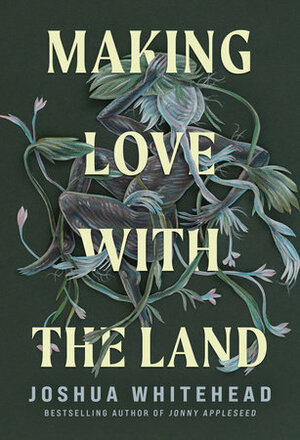
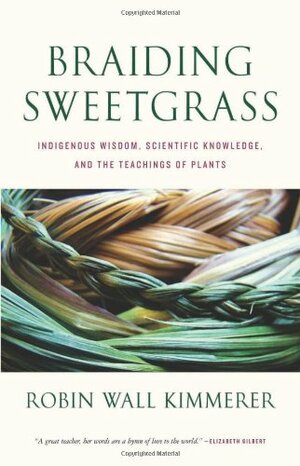
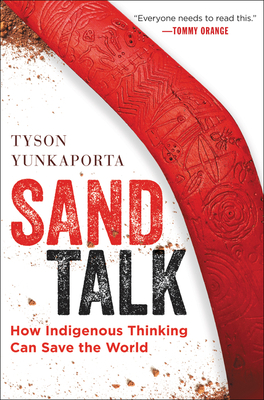
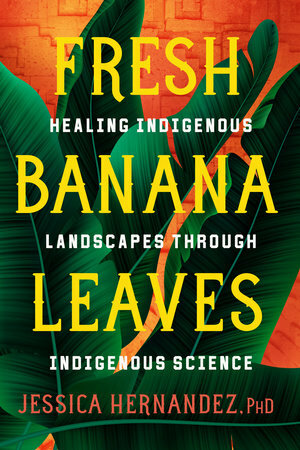
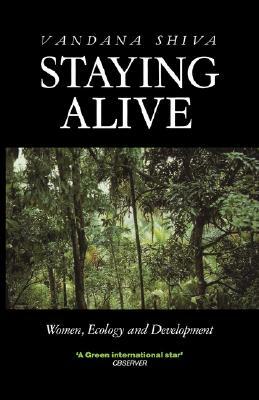
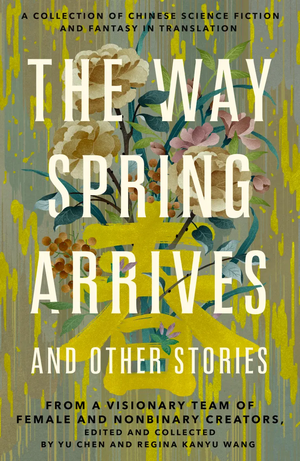
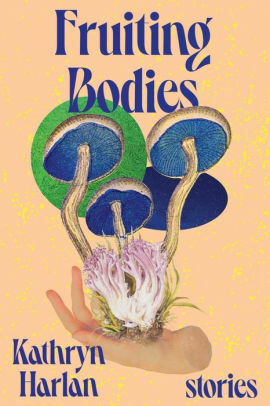
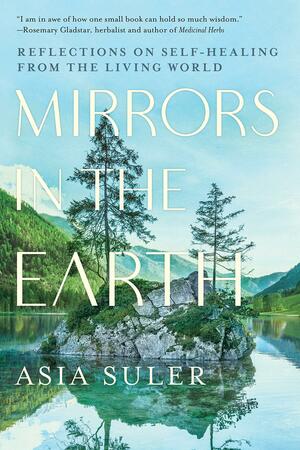
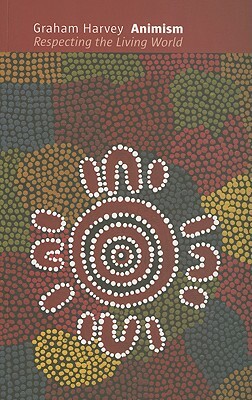
No comments